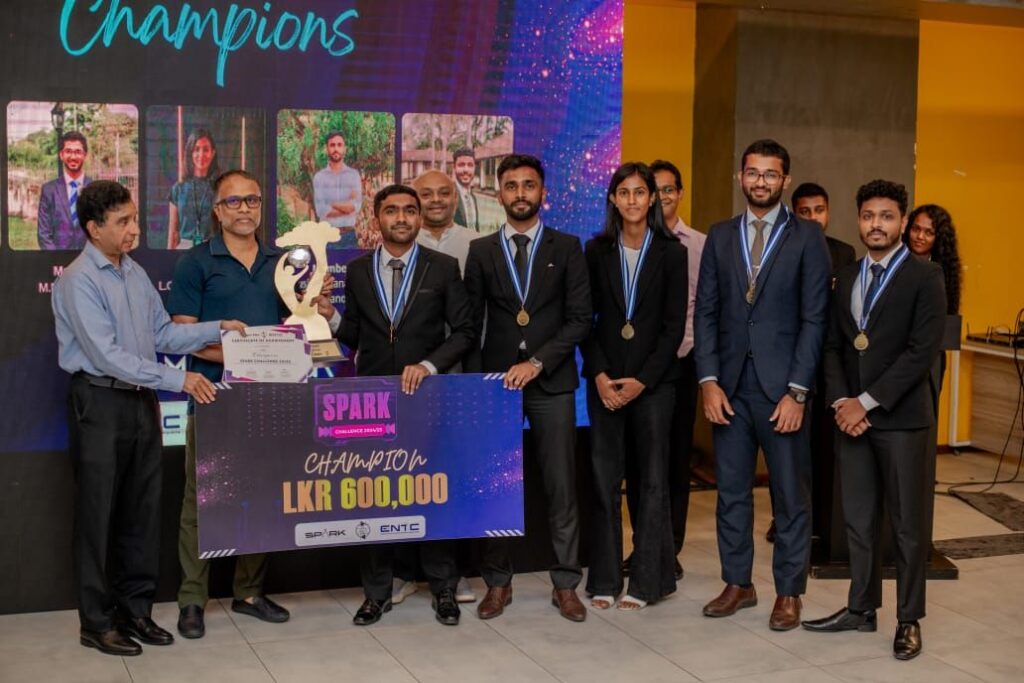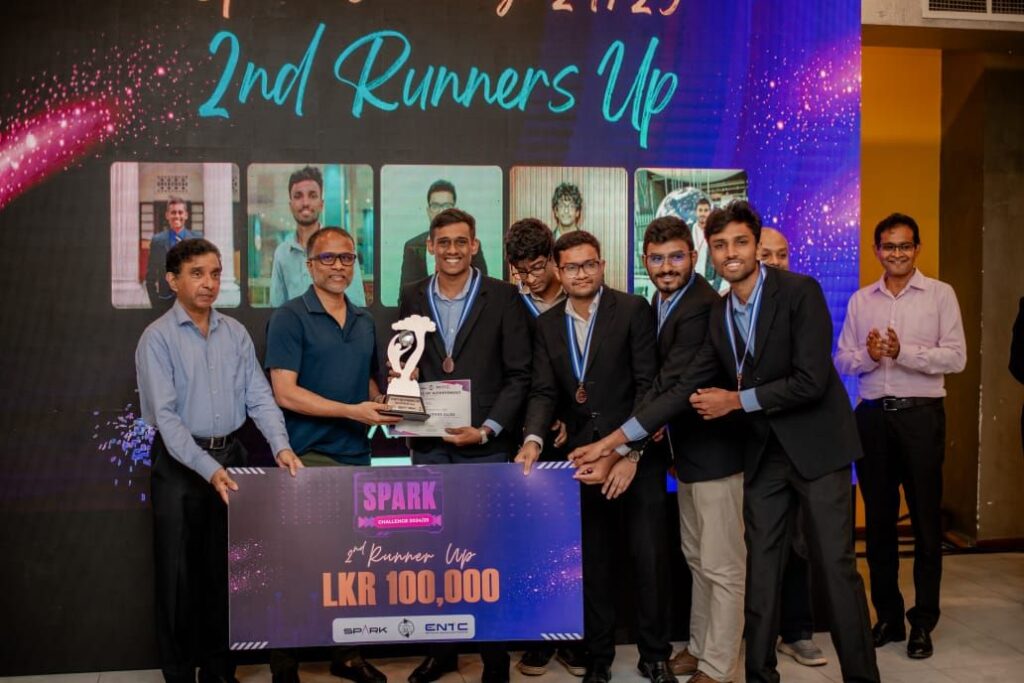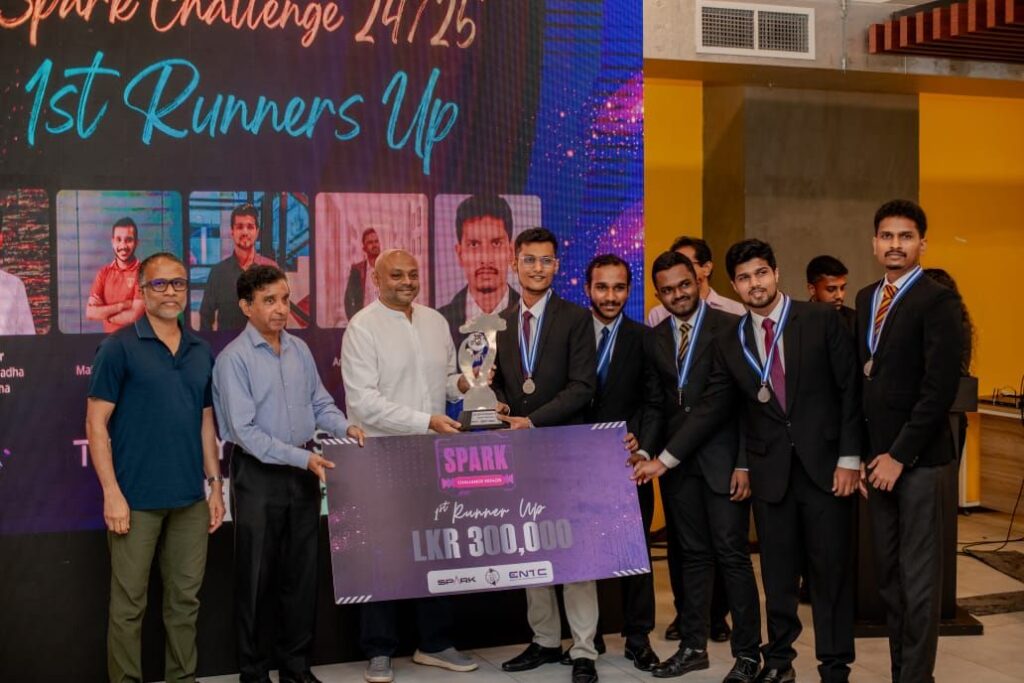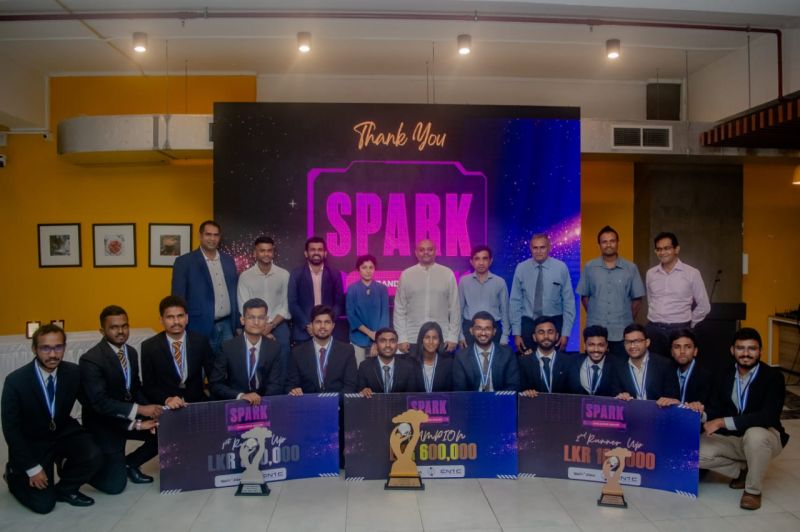Insightful Seminar on “FPGA Accelerators in the Cloud” by Prof. Viktor Prasanna of University of Southern California(USC).
On 30th July 2025, the department had the opportunity to host Professor Viktor Prasanna from the University of Southern California (USC) for a seminar on FPGA Accelerators in the Cloud at ENTC1. His talk explored one of the most dynamic areas in high-performance computing, offering valuable insights into this fast-growing field.
Professor Prasanna explained the complex yet crucial role of Field-Programmable Gate Arrays (FPGAs) in revolutionizing cloud-based applications. He highlighted current industry trends and cutting-edge research, explaining how FPGAs are being deployed to accelerate demanding workloads such as machine learning, real time data analysis, and complex scientific simulations. The session provided a clear vision of the future, where reconfigurable hardware is becoming essential for achieving next-level performance and efficiency in the cloud.
The talk was far more than a one way lecture; it evolved into a dynamic and interactive session. The presentation sparked a stimulating discussion, with both students and staff members posing intriguing questions. Professor Prasanna concluded the discussion by encouraging all students interested in the field to apply for graduate studies and internships at his lab at USC.
We extend our heartfelt gratitude to Professor Prasanna for sharing his profound expertise and for engaging so generously with our community. The insights shared will undoubtedly inspire further research and academic pursuits among our attendees. A special thank you to everyone who participated and contributed to the vibrant discussion.
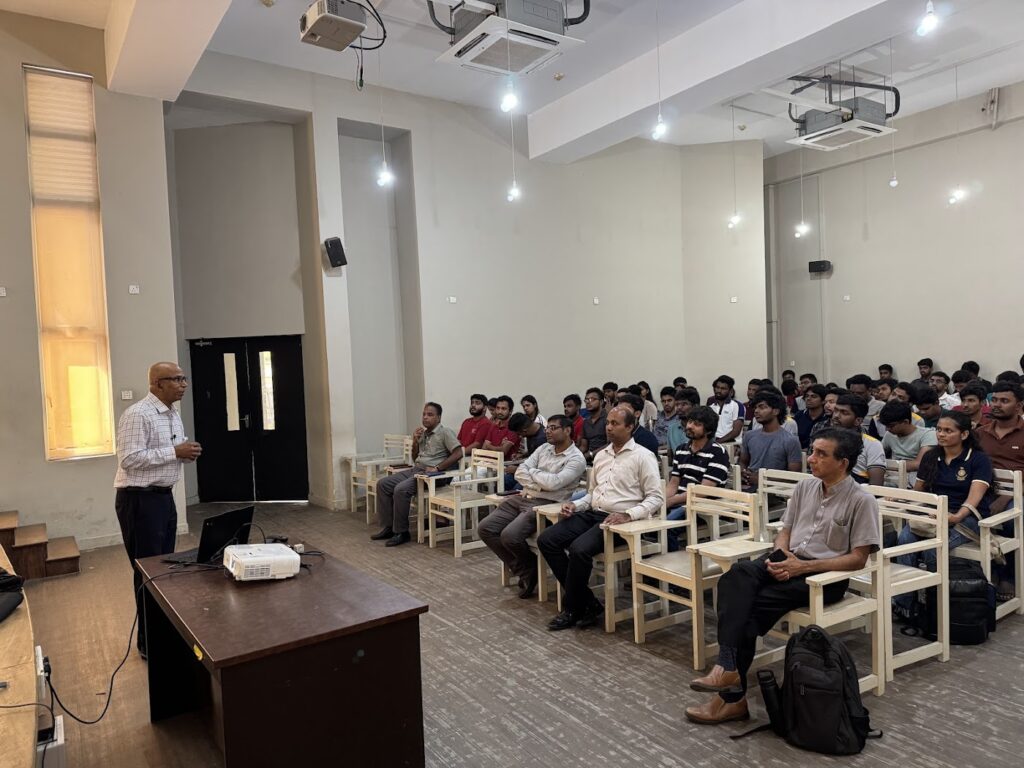
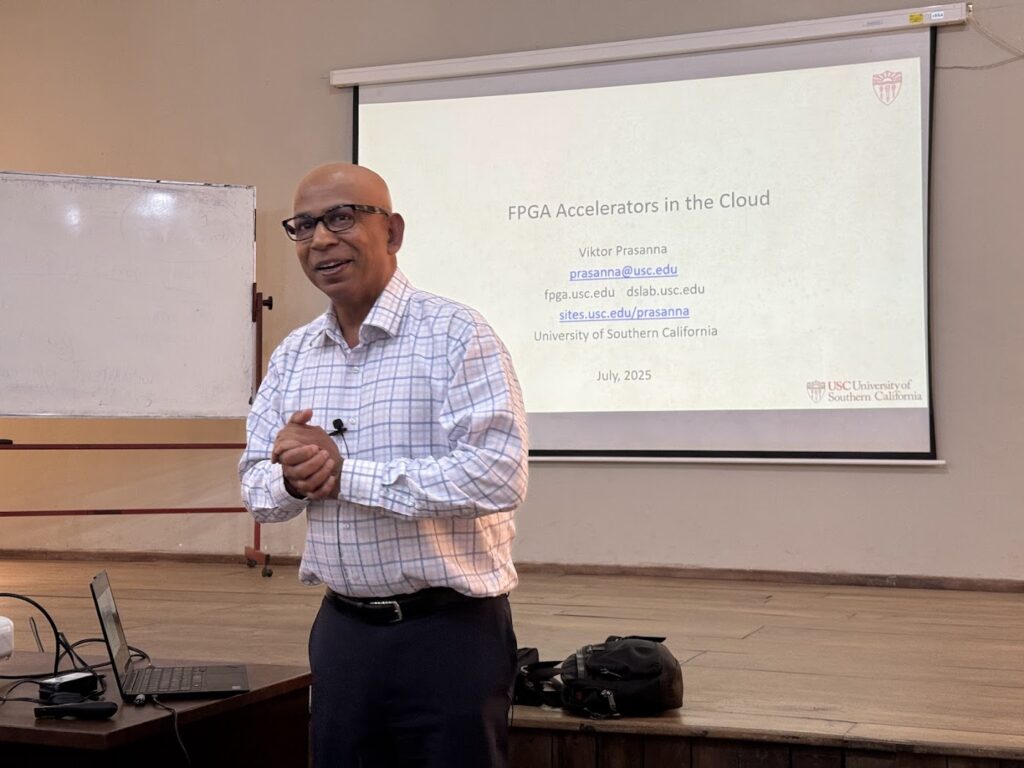
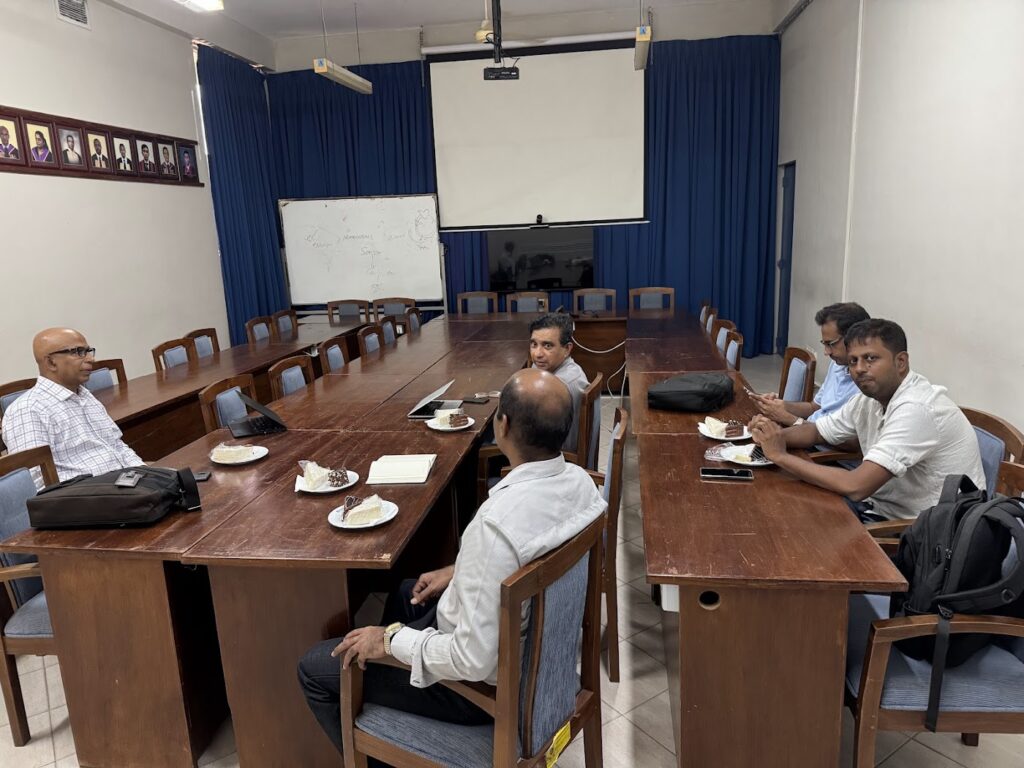
Expert Panel from South Korea Provides Input on New Biomedical Engineering Programs
On August 13th , 2025, the Department of Electronic and Telecommunication Engineering welcomed a distinguished panel of experts from South Korea for a consultative visit. The delegation, led by Professor Hyun Woo Jeong of Eulji University, provided valuable insights and expert input on the proposed postgraduate programs and short courses in the field of biomedical engineering.
This collaborative mission is supported by the Korea Foundation for International Healthcare (KOFIH), a public agency dedicated to international cooperation and humanitarianism in the healthcare sector. KOFIH’s involvement highlights the global significance of advancing biomedical engineering education and research.
The visit included in depth discussions and a review of the curriculum, aimed at aligning the new programs with international standards and best practices. Professor Jeong, a respected academic from Eulji University, which has a strong focus on healthcare and medical research, shared his expertise with faculty members and department heads. The Korean panel’s recommendations will be instrumental in shaping a curriculum that is both innovative and relevant to the evolving needs of the healthcare industry.
The development of these new postgraduate and short course offerings in biomedical engineering is a strategic initiative by the department to cultivate highly skilled professionals who can contribute to the advancement of medical technology and patient care. The collaboration with the Korean experts and the support from KOFIH are pivotal steps in ensuring the success and global competitiveness of these programs. The department looks forward to a continued partnership and knowledge exchange.
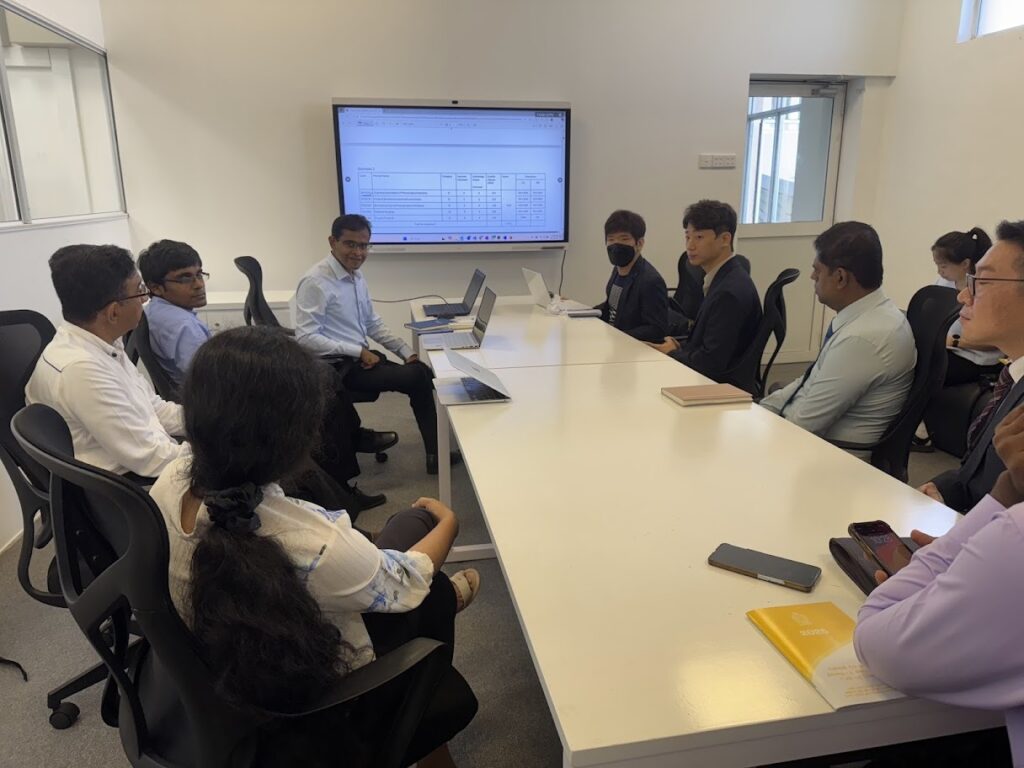
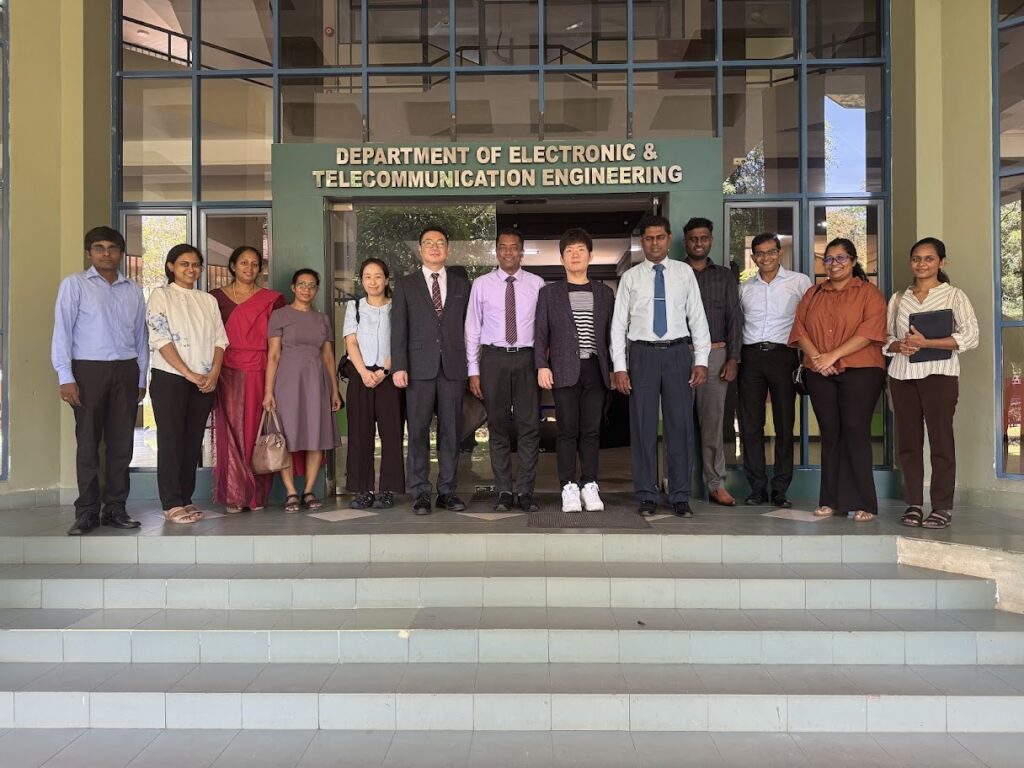
𝗖𝗲𝗹𝗲𝗯𝗿𝗮𝘁𝗶𝗻𝗴 𝗜𝗻𝗻𝗼𝘃𝗮𝘁𝗶𝗼𝗻 𝗮𝘁 𝗦𝗣𝗔𝗥𝗞 𝟮𝟬𝟮𝟱
On Saturday, August 2nd, we witnessed an incredible showcase of student ingenuity at the SPARK Challenge, held in Colombo.
This event brought together some of the brightest young innovators tackling real-world challenges through sustainable and scalable engineering solutions. We are proud to announce this year’s winners:
Champions – Team Zypher
Project: BSFix – A Revolutionary Black Soldier Fly (BSF) Farming Unit
Led by Demitha Manawadu, Team Zypher introduced a compact, odor-controlled, and scalable BSF system to convert organic waste into animal feed and compost. Their solution combats methane emissions, supports SDG 13 (Climate Action), and promotes circular economy practices.
1st Runners-Up – Team Dyson Sphere
Project: SEIAN – Smart Energy Integration and Automation Network
Led by Rusula Oshadha Pathirana, this team designed an intelligent, fault-tolerant inverter system that maintains grid stability during outages and supports the growth of decentralized renewable energy systems.
2nd Runners-Up – Team Rysera
Project: URO MONITOR – Smart Urine Output Monitoring System
Led by Sahan Cooray, Team Rysera developed an IoT-enabled medical device to automate urine output tracking in ICUs and dengue wards—boosting accuracy, reducing nurse workload, and improving patient care in Sri Lanka’s hospitals.
Congratulations to all the winning teams for your innovation, teamwork, and commitment to engineering solutions that matter. The SPARK Challenge continues to be a launchpad for real impact!
